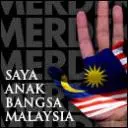
 It was showtime at the Padang Timur, PJ on 14th October, 2017 by Pakatan Harapan.
It was showtime at the Padang Timur, PJ on 14th October, 2017 by Pakatan Harapan.
 I would translate this into English to read “For the love of Malaysia, end kleptocracy”
I would translate this into English to read “For the love of Malaysia, end kleptocracy”
I have 2 questions to pose to the leadership of Pakatan Harapan, but first, and for the avoidance of any doubt, let me say this.
I am unwavering in my belief and stand that we must be rid of UMNO and BN if we are to save Malaysia.
Now, back to Pakatan Harapan’s “For the love of Malaysia, end kleptocracy” clarion call and my 2 questions to their leaders.
That the power must be taken away from the kleptocrats and they be brought to book and made to return all they have looted, if at all possible, is a given.
My first question, then, is what follows after we have gotten rid of the kleptocrats?
What then?
I will defer, for now, discussion of this question and turn to my second, as I feel that what emerges from any discussion of the second may well shed light on what we want to follow after we have gotten rid of the kleptocrats.
My second question.
For the love of Malaysia, ok, but which Malaysia?
“How many Malaysias are there?”, some of you may well ask.
Well compare Malaysia in 2017 with that which was promised to the people of Sabah and Sarawak in 1963.
Have the people of Sabah and Sarawak been accorded all that was promised them, or, over the last 54 years have they been incrementally cheated, rendered a colony of Malaya, their aspirations of attaining independence rendered illusory?
And if the Malaysia of 2017 is so far removed from what Sabahans and Sarawakians were promised in 1963, pray tell, why must they feel love for this Malaysia?
What of the people of Malaya?
What was promised them when they gained independence in 1957? And were these promises to evaporate when the new Federation of Malaysia was created in 1963?
The Federal Constitution of 1957, promulgated for the new Federation of Malaya and subsequently, with amendments, has served as the framework for the new Federation of Malaysia, although it has been contended that the agreement between Malaya, Singapore, North Borneo ( now Sabah ) and Sarawak back then was that a new constitution was to be drafted and that the document of 1957 was only intended as an interim constitution.
Personally, that makes sense, but it has never happened, and all we have is the Federal Constitution, duly amended from time to time, as the framework for the intended Malaysia.
Now, I have looked the constitution from front to back and cannot find the word “Bumiputra”.
There was no notion of a nation, Malaya, back then in 1957, split into two peoples.
Bumiputra and non-Bumiputra.
This division of the people, first of Malaya, then of Malaysia, into Bumiputra and non-Bumiputra, violates the promise, first of 1957, and then in 1963.
What was that promise?
A nation of equals.
And if I am right in this, where then stems this notion of ‘hak istimewa orang Melayu’?
There are no “special rights of the Malays” entrenched in the Constitution. Article 153 (1) of the Federal Constitution only provides that “It shall be the responsibility of the Yang di-Pertuan Agong to safeguard the special position of the Malays and natives of any of the States of Sabah and Sarawak and the legitimate interests of other communities in accordance with the provisions of this Article.
So, no special Malay rights and no Malay privileges was ever intended in 1957 or 1963.
What was intended with Article 153(1)?
The Reid Commission Report, which formed the basis of our Constitution, is telling. I reproduce below an excerpt from the same.
“Our terms of reference require that provision should be made in the Constitution for the ‘safeguarding of the special position of the Malays and the legitimate interests of other Communities’. In addition, we are asked to provide for a common nationality for the whole of the Federation and to ensure that the Constitution shall guarantee a democratic form of Government. In considering these requirements it seemed, to us that a common nationality was the basis upon which a unified Malayan nation was to be created and that under a democratic form of Government it was inherent that all the citizens of Malaya, irrespective of race, creed or culture, should enjoy certain fundamental rights including equality before the law. We found it difficult, therefore, to reconcile the terms of reference if the protection of the special position of the Malays signified the granting of special privileges, permanently, to one community only and not to the others. The difficulty of giving one community a permanent advantage over the others was realised by the Alliance Party, representatives of which, led by the Chief Minister, submitted that in an independent Malaya all nationals should be accorded equal rights, privileges and opportunities and there must not be discrimination on grounds of race and creed…’ The same view was expressed by their Highnesses in their memorandum, in which they said that they ‘look forward to a time not too remote when it will become possible to eliminate Communalism as a force in the political and economic life of the country’. When we came to determine what is ‘the special position of the Malays’… we found that… the special position of the Malays has always been recognised… We found that there are now four matters with regard to which the special position of the Malays is recognised and safeguarded… the system of reserving land for Malays has been in action for many years… There are now in operation quotas for admission to the public services… There are now also in operation quotas in respect of the issuing of permits or licences for the operation of certain businesses… In many classes of scholarships, bursaries and other forms of aid for educational purposes preference is given to Malays… We found little opposition in any quarter to the continuance of the present system for a time, but there was great opposition in some quarters to any increase of the present preferences and to their being continued for any prolonged period. We are of opinion that in present circumstances it is necessary to continue these preferences. The Malays would be at a serious and unfair disadvantage compared with other communities if they were suddenly withdrawn. But, with the integration of the various communities into a common nationality which we trust will gradually come about, the need for these preferences will gradually disappear. Our recommendations are made on the footing that the Malays should be assured that the present position will continue for a substantial period, but that in due course the present preferences should be reduced and should ultimately cease so that there should then be no discrimination between races or communities…We recommend that after 15 years there should be a review of the whole matter and that the procedure should be that the appropriate Government should cause a report to be made and laid before the appropriate legislature; and that the legislature should then determine either to retain or to reduce any quota or to discontinue it entirely”.
There you have it.
Our forefathers who made up the Alliance Party, representatives of which, led by the Chief Minister Tungku Abdul Rahman, intended that ‘in an independent Malaya all nationals should be accorded equal rights, privileges and opportunities and there must not be discrimination on grounds of race and creed…’.
The ‘special position of the Malays’ was never intended to be in perpetuity. It did not create rights, but was intended as a temporary mechanism to address an economic imbalance perceived then.
In 1957 Malaya and, later, in 1963, Malaysia, we were intended to be equals.
In 2017 Malaysia, Jamal Yunoos Red Shirt Army and Ibrahim Ali’s PERKASA speak of “hak istimewa orang Melayu” and “ketuanan Melayu”.
Yet again, in 2017 Malaysia, the people are divided into two.
Yes, from its inception, the Federal Constitution, in Article 3(1), declares that the religion of the Federation is Islam. Note that Sabah and Sarawak are said to have been promised that this provision would not apply to them.
Does this provision render Malaya, if not the whole of Malaysia, an Islamic state, as is now claimed by many quarters?
A 5-man bench of the Federal Court ruled otherwise. This is what Salleh Abas said in that case.
‘…it can be seen that during the British colonial period, through their system of indirect rule and establishment of secular institutions, Islamic law was rendered isolated in a narrow confinement of the law of marriage, divorce and inheritance only. In our view, it is in this sense that the framers of the Constitution understood the meaning of the word ‘Islam’ in the context of Article 3. If it had been otherwise, there would have been another provision in the Constitution which would have the effect that any law contrary to the injunction of Islam will be void. Far from making such provision, Article 162, on the other hand, purposely preserves the continuity of secular law prior to the Constitution, unless such law is contrary to the latter’… we have to set aside our personal feelings because the law in this country is still what it is today, secular law”.
The case of Che Omar Che Soh has never been overturned by a subsequent decision of the Federal Court.
Malaya in 1957, and then Malaysia in 1963 secular, but the Malaysia of 2017 an Islamic state, whatever that might mean?
My first question, then, to the leaders of Pakatan Harapan, is, even as you urge us to join forces with you, out of love for Malaysia, to end this ongoing kleptocracy, which Malaysia would that be?















Marie C.
November 14, 2017
Yes Haris, Touche’.